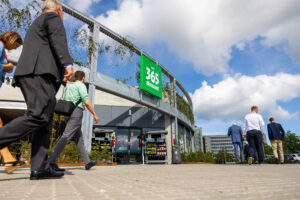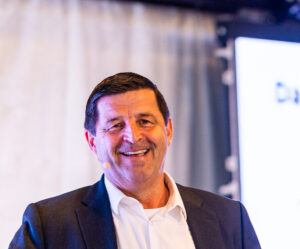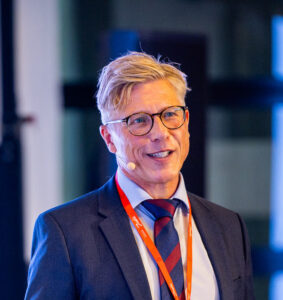The company says it aims to empower OEMs, contractors, food retailers and engineers to develop new solutions to enhance energy efficiency in food retail
NORDBORG, Denmark, 6 September 2023: Danfoss announced that a new Application Development Centre was opened at the flagship energy-efficient Smart Store supermarket near Danfoss’ headquarters in Nordborg, Denmark. Making the announcement through a Press release, Danfoss said this collaborative test environment will empower original equipment manufacturers (OEMs), contractors, food retailers, and Danfoss engineers to develop new technologies and solutions to enhance energy and operational efficiency for food retail.
 The release said the Danfoss Smart Store is a functioning supermarket, and it will provide the unique opportunity to understand how new technology will operate in the real world while empowering the store managers to focus on their business while saving energy and costs. The release further said the store uses world-class heating and cooling technology and automation solutions with less than 3-4 years payback times.
The release said the Danfoss Smart Store is a functioning supermarket, and it will provide the unique opportunity to understand how new technology will operate in the real world while empowering the store managers to focus on their business while saving energy and costs. The release further said the store uses world-class heating and cooling technology and automation solutions with less than 3-4 years payback times.
Danfoss said the Application Development Centre within the Smart Store supermarket, which is part of a full Decarbonisation Park, includes several innovation centres for applications such as heat pumps, heat recovery, next-generation district heating networks, and data centres. The new Application Development Centre, the company added, will offer the cooling and heating industry the opportunity to access state-of-the-art test facilities and expert support for field testing new components and cloud technologies for both small and large applications.

Jurgen Fischer
The release said Danfoss has built a new Smart Store supermarket at its headquarters to lead the way for climate-friendly food retail with energy-efficient heating and cooling technologies. The store, the release further said, is expected to be 50% more energy efficient than a traditional store, and 90% of the space heating needs for the entire store will be provided by a heat recovery unit that captures excess heat produced by the cooling systems. Moreover, Danfoss said, the supermarket has two refrigeration systems that run independently, ensuring that product testing does not interfere with the operations of the supermarket.
According to Danfoss, with smart controls and digital monitoring, retailers can optimise capacity and demand, allowing them to respond to anomalies in a timely manner, preventing energy and food losses. The store, the company said, will be managed by Danfoss and ANEO Retail’s partnership and their unique service model, Energy as a Service (EaaS), which allows grocery stores to subscribe to technical facilities as a service, reducing their operational expenses and time spent on issue management.
Danfoss said the concept will allow supermarkets to implement the most energy-efficient equipment without large investments and high up-front costs. The company added that the store’s refrigeration and comfort cooling systems will run exclusively on natural refrigerants (CO2), which have the lowest possible global warming potential score.

Peder Gabrielsen
Jürgen Fischer, President, Danfoss Climate Solutions, said: “The new Smart Store showcases the incredible possibilities we have today with existing solutions for natural refrigerants, energy efficiency, and sourcing renewables – all in one installation. We are proud to officially welcome customers and partners to the Application Development Center today to take the next steps to reimagine the future and develop new heating and cooling technologies that pave the way towards zero-emission food retail.”
The release said the occasion was celebrated with an open house event for Danfoss partners and customers who have contributed to the site. Peder Gabrielsen from the European Environment Agency offered a keynote speech, followed by a site tour of the event led by Danfoss leadership.
Gabrielsen said: “With the fluorinated gas (F-gas) Regulation in Europe, we are seeing a reduction of F-gas emissions, and the Kigali Amendment to the Montreal Protocol is driving the refrigerant transition at a global level. The example we see here today is a good example of movement in the right direction. When energy efficiency and low global warming potential refrigerants work in tandem, we can vastly cut emissions from heating and cooling. Moreover, the need to use energy more efficiently and reduce costs is constantly growing, and innovation like what we see here has a key role in finding the best solutions.”
Copyright © 2006-2025 - CPI Industry. All rights reserved.